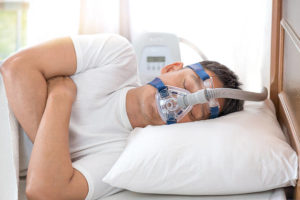 Public awareness about sleep apnea has increased as many celebrities have been sharing their stories about their personal struggles with the breathing disorder. Shaquille O’Neal, William Shatner, and Roseanne Barr are just a few popular faces who have gone public about overcoming their symptoms with effective treatment options. Approximately 39 million adults in America have sleep apnea; however, 1 in 50 individuals isn’t diagnosed. Sleep apnea involves more than loud snoring. It can have life-threatening complications with no treatment.
Public awareness about sleep apnea has increased as many celebrities have been sharing their stories about their personal struggles with the breathing disorder. Shaquille O’Neal, William Shatner, and Roseanne Barr are just a few popular faces who have gone public about overcoming their symptoms with effective treatment options. Approximately 39 million adults in America have sleep apnea; however, 1 in 50 individuals isn’t diagnosed. Sleep apnea involves more than loud snoring. It can have life-threatening complications with no treatment.
What is Sleep Apnea?
Obstructive sleep apnea is the most common type of the condition. It occurs when the tongue or soft tissues in the back of the mouth collapse while sleeping. This can create an obstruction in the upper airway that results in frequent pauses in breathing throughout the night. Each event can last for a minute or longer.
Sleep apnea can result in several symptoms that may not seem related, like:
- Loud, chronic snoring
- Waking up choking or gasping for air
- Morning headaches
- Fatigue
- Mood changes or irritability
- Difficult concentrating
What are the Risks of Sleep Apnea?
Each breathing disruption depletes your body of oxygen, which can affect your health over time. You can be at risk of heart disease, diabetic complications, and much more.
Every time you stop breathing, it also disrupts your sleep cycle. Not only can you battle fatigue, but it can lead to sleep deprivation. You can experience memory loss, depression, anxiety, and loss of cognitive abilities. Untreated sleep apnea is linked to an increased risk of workplace and auto accidents.
How is Sleep Apnea Treated?
Your physician can diagnose sleep apnea through a sleep study. Based on the results, they’ll recommend treatment, which can include:
- CPAP: A CPAP machine is the most traditional method of treating sleep apnea. Gentle air pressure is delivered through a mask worn over the mouth or nose to prevent oxygen depletion.
- Oral Appliance: As an alternative to a CPAP, patients with mild-to-moderate obstructive sleep apnea can benefit from an oral appliance. The custom-fit device repositions your jaw and tongue to prevent blockages in the airway. It is a comfortable solution to stop pauses in breathing. It can be used alone or along with a CPAP.
Better nights are possible with sleep apnea therapy. You can sleep peacefully, knowing you’re taking the necessary steps to breathe easier. You’ll wake up feeling well-rested and alert while promoting your overall well-being.
About Dr. Dean Hutto
Dr. Hutto achieved his dental degree at the University of Texas Dental School and has continued his education in many specialties, including sleep apnea. He is affiliated with the American Academy of Dental Sleep Medicine and many other professional organizations. Request an appointment through his website or call (281) 688-2104.
